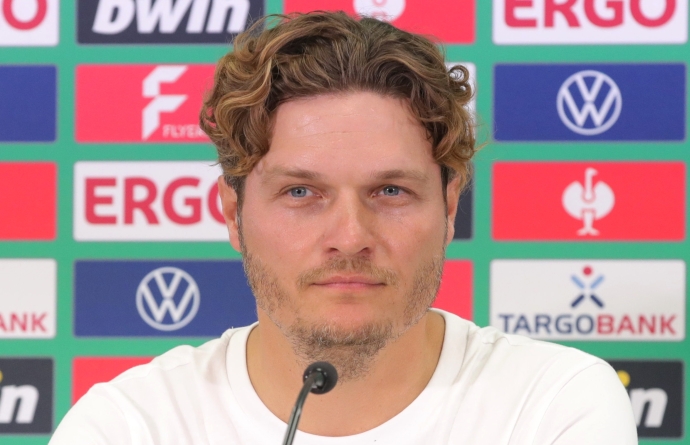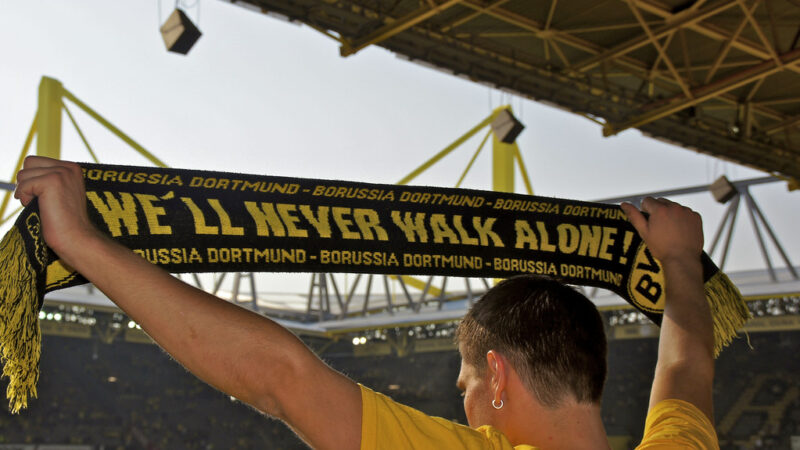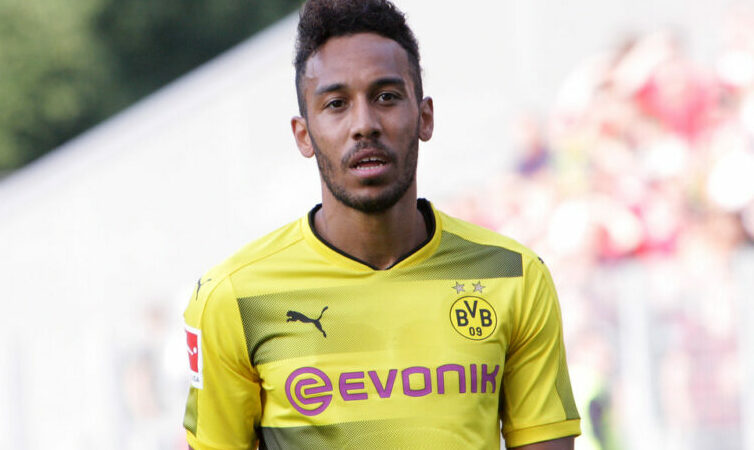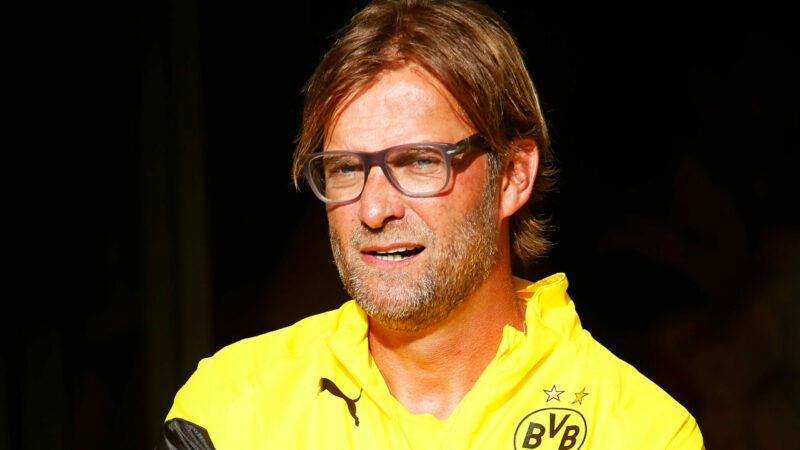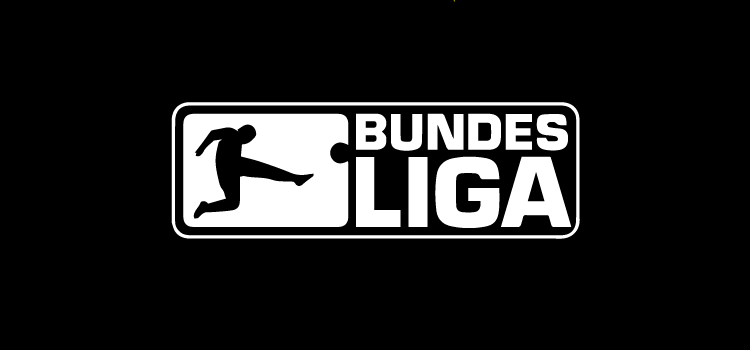Greatest Signings: Flemming Povlsen
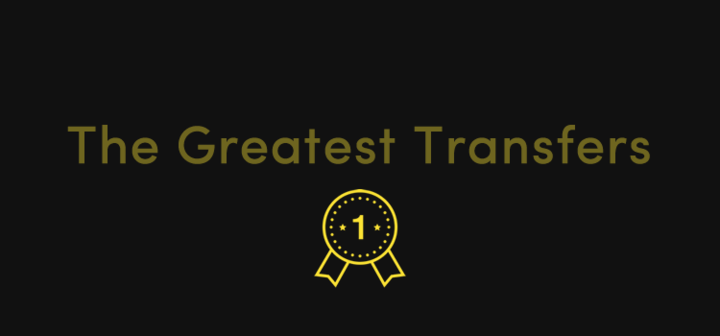
A couple of weeks ago, we looked at Norbert Dickel. Nobby was a player who had failed to make much of an impact before coming to BVB and became a folk hero due to his now infamous exploits in the DFB Pokal final in 1989, earning the title of the “hero of Berlin.” Dickel obviously had something inside of him that was always there – he just needed the right man to bring it out of him. Other players move clubs and never deviate from the path they’re on. But the fans fall in love with them all the same. With an attitude and work rate like Flemming Povlsen, it was obvious that that would be the case when he moved to the Westfalenstadion in 1990.
Born in Brabrand, Denmark, in 1966, Povlsen would start his professional career with AGF Aarhus in 1984. He would stay with Aarhus for two years, scoring 13 times in 40 appearances. His performances were enough to convince Real Madrid to sign him for their reserve team, Castilla. Povlsen’s stay in Spain was short lived despite his apparent importance to Castilla. In his only season, he clocked up another 40 appearances and scored 10 goals. F.C Koln had seen the potential of Povlsen though and the allure of first team football in Germany was enough to end the young Dane’s dream of a career for the biggest club in the world. Povlsen was not exactly technically gifted, but what he lacked in ability he more than made up for in desire and work rate. His speed also terrified defences and he became an instant hit in Cologne. He stayed at the Mungersdorfer Stadion until 1989 and helped Koln to two successive Bundesliga runners-up places during his time there. He played 70 times and scored 19 goals before moving to PSV Eindhoven in Holland. His time in Eindhoven was a success. He scored 10 goals in 30 games, won the Dutch Cup and earned another runners-up medal for PSV’s second place finish in the 1990 Eredivisie. But Povlsen would soon be on the move again. When Borussia Dortmund came calling, they were too good an opportunity to turn down.
PSV paid €2 million for Povlsen and earned their money back from BVB. Povlsen’s work rate made him an instant hit with the fans. He never scored many goals throughout his career, which may have been down to his tendency to put the needs of the team above his own. But the fans excused him precisely for that reason. They knew that the work Povlsen did was for the greater good of the team and that, even though he was a forward after all, he didn’t need to score 20 goals a season to have any worth.
Povlsen’s first season with the club ended with him scoring 5 goals in all competitions. The following season was a standout for club and player. Povlsen undoubtedly had his best season in a black and yellow shirt. He scored 7 goals, all in the league, as he helped BVB to a second place finish in the Bundesliga. When it looked as if Povlsen was finally going to win his maiden league winners medal, VfB Stuttgart scored in the last minute of their game in Leverkusen to snatch the title out of Dortmund’s hands and be crowned champions on goal difference. It was a devastating blow for the club but one they would ultimately recover from.
That summer would be the pinnacle of Flemming Povlsen’s career when he helped Denmark win the 1992 European Championship in Sweden. Denmark didn’t actually qualify for the tournament, but replaced Yugoslavia due to political unrest in the former state at the time. Already a prominent figure in the team, Povlsen played every game in Denmark’s greatest sporting achievement. Povlsen made his debut for his country in 1987 and had greater success in front of goal than he did at club level, scoring 21 goals and winning 62 caps.
Povlsen would start the 1992/93 season on a high from the summer exploits. He would score 7 goals overall that season and was as much loved as he ever had been in Westphalia. But in April 1993, Povlsen ruptured his anterior cruciate ligament in a game against his former club, F.C Koln. He would miss the next 6 months with the injury which would undoubtedly have an effect on his speed upon his return. But return he did in September 1994. It is very unusual to miss such a short amount of time with such a serious injury. The fact that Povlsen made such a quick recovery was typical of the player who ran himself into the ground for his team, and he had obviously done the same in the treatment and physio rooms.
But fate can be a cruel mistress and, in April 1994, Povlsen would suffer the same injury in the opposite knee during a game against Kaiserslautern. This injury was far more serious and would keep him out until March the following year. He would make his comeback against Eintracht Frankfurt, which would finally earn him a league winners medal when Borussia Dortmund won their first Bundesliga in 26 years at the end of the season. But this injury would prove to be too much for Flemming Povlsen to recover from and he announced his retirement from professional football in May 1995. His love for football would lead him back into the game as he sporadically played in the Danish lower leagues for his hometown club, Brabrand IF, making 40 appearances between 1998 and 2004. Flemming would eventually move into coaching and directorial roles though, and is currently coaching with Aarhus.
Players like Flemming Povlsen and Nobby Dickel prove that some players don’t have to be the best technically to have a great impact on the team. Dickel, as mentioned earlier, came to the club at the right time in his career. Povlsen was a player who made the most out of what he had. His technique at times was an eyesore and he never scored many goals. But his desire on the pitch and innate ability to terrify players just by running towards them did a vital job for the team. Ultimately his over-exertion may have caused the early demise of his career, but that is just speculation. For now, let us relive the great moments of a Dortmund folk hero.

